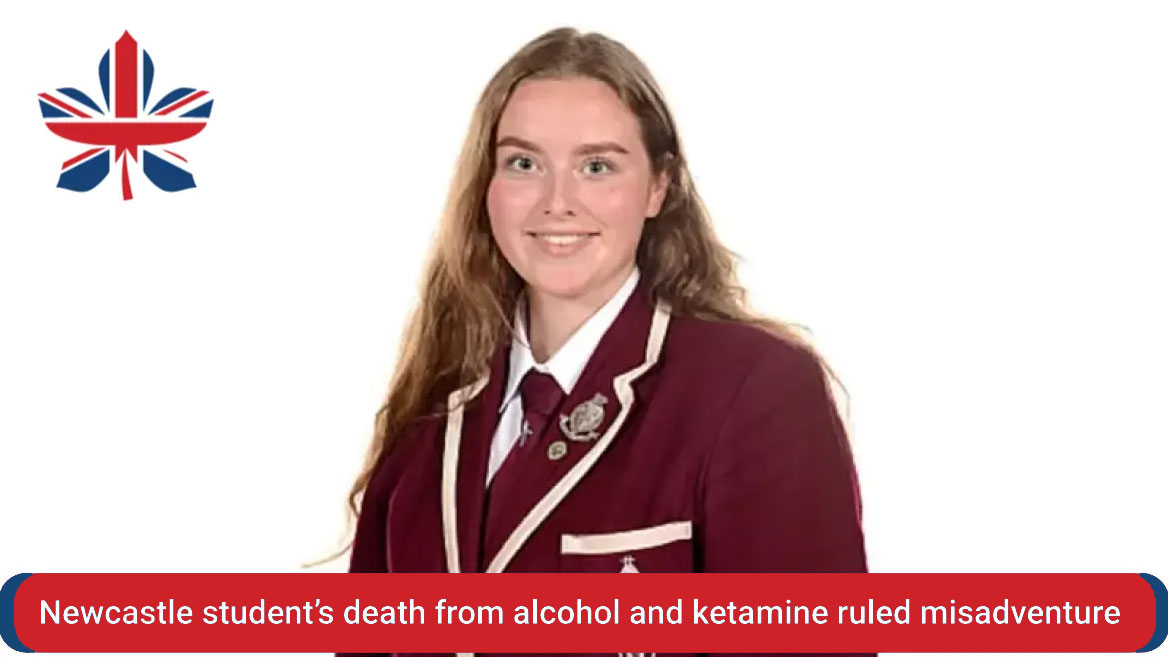A coroner’s court heard that a university student from Northern Ireland who was found dead on her first night of classes after ingesting a fatal dose of ketamine and alcohol was told that this is how they do it in England.
British dissertation help is one of the best academic writing service providers around. It provides remarkable health assignment help and medical assignment help, along with other dissertation assistance. Today, it is bringing you the sombre news of the death of the Newcastle student, which has been ruled a “misadventure”, by the authorities.
Jeni Larmour, 18, a successful student and classical vocalist who was ready to start a degree in planning and architecture at university, was characterised as “a model child” by her previous headmaster.
However, the adolescent died after ingesting alcohol and the anaesthetic medication ketamine on the first night of her residence at Newcastle University.
Paramedics discovered Miss Larmour at 5 a.m. on October 3, 2020, by which time it was obvious she had passed away.
A coroner determined that Jeni Larmour, an 18-year-old from Newtownhamilton, passed only hours after arriving at Newcastle University in October 2020 after taking ketamine administered to her by another.
The former deputy head girl used the tranquillizer with her brand-new roommate, 20-year-old Kavir Kalliecharan, who informed the coroner that he was speaking of his time at an English institution and that he had never used ketamine before.
After hearing from Kalliecharan, other student witnesses, a Home Office pathologist, and police on the second day of the inquest, Newcastle coroner Karen Dilks concluded that it was most likely an accident that caused Larmour’s death. According to her, Larmour arrived in Newcastle that day and shared a drink with her new roommates between 5:00 and 7:00 p.m.
Dilks said: “Later that evening, while her judgment was impaired due to alcohol, Jeni took a quantity of ketamine provided for her by another, the combined effects of which led to her death.”
The inquest learned that Larmour recorded a Snapchat video while using her phone, showing her in Kalliecharan’s bedroom with white substance on a table. Although it wasn’t played in plain view, observers could see it.
The footage, according to Andrew Metcalfe, a Northumbria police acting detective sergeant at the time, showed no signs of Kalliecharan or Larmour forcing the other to take narcotics or using coercion to force the other to do so.
In his testimony on Tuesday, Kalliecharan claimed that the drug made him sick, causing him to throw up for hours before going to sleep. At around five in the morning, he awoke to discover Larmour face down and on the floor of his bedroom.
The university, according to Lucy Backhurst, academic registrar and director of student services, has a required online induction programme containing information about alcohol and drugs.
However, she acknowledged that the messaging was difficult, and after Larmour died, there was criticism when the vice chancellor sent students an email with a “stark” warning about the dangers of alcohol and drugs.
Backhurst said: “We got an awful lot of kickback from students [saying], ‘Who do you think you are, telling us what to do?”
She added: “It’s a balance. Students need to be aware of the risks, dangers and signs and we have done an awful lot before 2020 and subsequently to try to raise awareness.”
Given that none of the flatmates who testified at the inquest could remember any information from the introductory training on alcohol and drugs, Dilks asked the university to have another look at it.
The university’s work on drug and alcohol advice, according to the coroner, is always changing and benefits from good collaboration with other organisations.
As the CPS examined “the seriousness of the charges” against Mr Kalliecharan, the court proceeding against him was postponed in April for eight weeks.
He admitted to having marijuana, ketamine, and MDMA on a relevant day at Newcastle University’s Park View Student Village when the matter was reopened in June.
The drug charges against Mr Kalliecharan were resolved through a conditional discharge for a period of two years, and he was also required to pay £85 in costs and a £21 victim surcharge. The hearing is ongoing.

